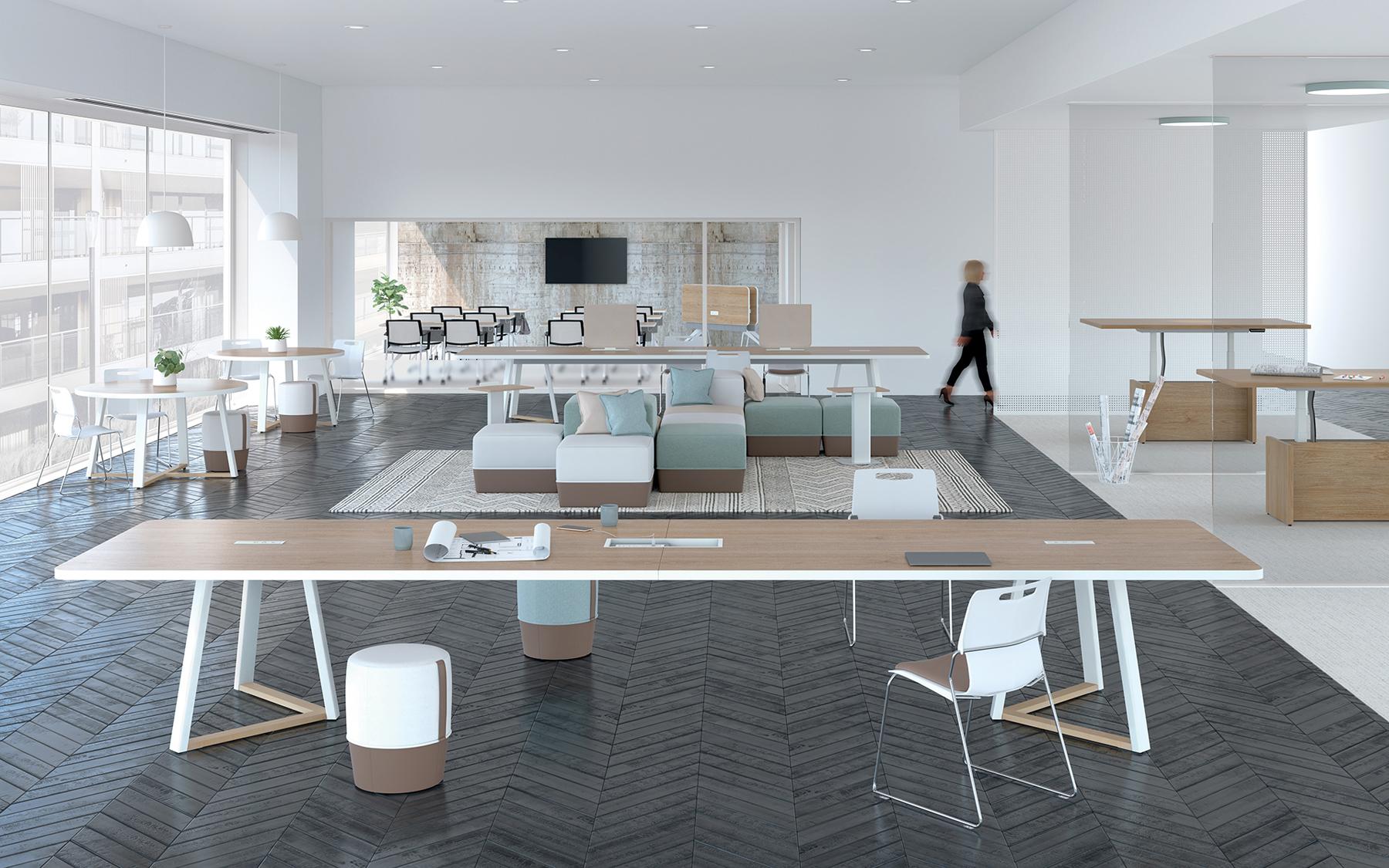The Urethane Blog
Everchem Updates
VOLUME XXI
September 14, 2023
Everchem’s exclusive Closers Only Club is reserved for only the highest caliber brass-baller salesmen in the chemical industry. Watch the hype video and be introduced to the top of the league: — read more
June 13, 2023
BDO Market Booms with Growing Demand in Traditional and Emerging Industries
ECHEMI2023-06-12
1,4-butanediol (BDO) is an influential organic and fine chemical raw material, widely used in textile, chemical and other fields. Demand for BDO has formed a significant driving force in recent years with the expansion of applications in emerging fields such as biodegradable plastics and lithium batteries, as well as the recovery of traditional downstream industries such as spandex and PBT plastics.

According to SteelHome, the BDO market is currently extremely hot, with prices rising sharply. The benchmark price of BDO in the East China market has exceeded 11000-11100 yuan/ton, with a growth to the past week. According to research by Shenwan Hongyuan Securities, China’s apparent BDO consumption is expected to reach about 4.47 million tons per year by 2025, and the compound annual growth rate of BDO demand from 2020 to 2025 will be 26.5 percent.
BDO’s traditional application areas are primarily spandex and PBT engineered plastics, with BDO’s downstream applications in the spandex industry chain and PBT engineered plastics reaching 51% and 26% respectively. The spandex market is extremely hot, with product prices up nearly 200 percent, as demand for textiles and clothing recovers and export orders rise. The PBT plastics sector is also showing a clear trend of growth, with increasing applications in new energy vehicles and charging devices.
In addition to traditional application areas, BDO is rapidly expanding its applications in emerging areas such as biodegradable plastics and lithium batteries. With the frequent introduction of domestic plastic reduction policies, the demand for biodegradable plastics is about to enter a period of explosive growth, and PBAT is expected to lead the way in the agricultural plastic film and packaging materials and other biodegradable plastic markets with well-established production technologies and high cost-effectiveness. As a major feedstock for PBAT, PBAT is expected to generate approximately 2.5 million tonnes/year of new demand for BDO by 2025. At the same time, BDO is an essential raw material in the hottest lithium battery industry chain, and its downstream NMP is an important solvent in the production process of lithium battery cathodes, as well as a cleaning agent for semiconductors and integrated circuits.
Due to the long-term low BDO product prices, companies can only barely maintain a break-even point, and the industry’s sluggish business environment severely hinders new capital expenditures. Currently, the d Chinese annual production capacity of BDO is about 1.45 million tons, and the demand gap exceeds 200,000 tons. Only two A-share listed companies, Zhongtai Chemical and Shaanxi Black Cat, have BDO production capacity, with a combined annual capacity of only 330,000 tons. The huge gap between supply and demand has attracted a group of domestic companies to ramp up production on a regular basis. More than 1.5 million tons of new BDO capacity are currently planned in China, but the construction of BDO capacity usually takes about two years and there is a certain commissioning period after completion to achieve stable production. The fastest new capacity will gradually enter the production release period in the second half of 2022. Many industry insiders believe that the mismatch between new capacity and downstream demand growth will keep this cycle of BDO shortages going for more than two years, and that the BDO business environment will continue to improve as a result.
Recently, the world’s largest BDO project with an annual production capacity of 900,000 tons was settled in Fujian. The project will help boost China’s new energy and environmental protection industries by using the large amount of hydrogen produced as a by-product of propane dehydrogenation to produce BDO, a new chemical material that can be used to produce lithium batteries, high-end spandex, fully biodegradable plastics and other products. The move is an important boost for China’s plasticization industry and will help promote the transformation and upgrading of the country’s chemical industry, as well as the development of new energy and environmental protection industries.
https://www.echemi.com/cms/1416474.html
Polybutylene adipate terephthalate
From Wikipedia, the free encyclopedia
PBAT (short for polybutylene adipate terephthalate) is a biodegradable random copolymer, specifically a copolyester of adipic acid, 1,4-butanediol and terephthalic acid (from dimethyl terephthalate). PBAT is produced by many different manufacturers and may be known by the brand names ecoflex, Wango, Ecoworld, Eastar Bio, and Origo-Bi. It is also called poly(butylene adipate-co-terephthalate) and sometimes polybutyrate-adipate-terephthalate[1] (a misnomer) or even just “polybutyrate”.[2] It is generally marketed as a fully biodegradable alternative to low-density polyethylene, having many similar properties including flexibility and resilience, allowing it to be used for many similar uses such as plastic bags and wraps.[3] It is depicted as a block co-polymer here due to the common synthetic method of first synthesizing two copolymer blocks and then combining them. However, it is important to note that the actual structure of the polymer is a random co-polymer of the blocks shown.
Read more here: https://en.wikipedia.org/wiki/Polybutylene_adipate_terephthalate
June 13, 2023
Furniture industry moves forward
June 5, 2023 | 10:37 am CDT

Photo courtesy of Groupe Lacasse.
The economy, along with material costs and labor concerns continues to temper the sales outlook of many residential and contract furniture manufacturers.
According to Allied Market Research, North American demand for furniture — residential and commercial — will hit $400.1 billion by 2030, at a CAGR of 4.9% (2021-2030). The residential segment is forecast to have a greater market share due to ongoing home renovations, plus the growing infrastructure and real estate market. Commercial furniture growth continues to be driven by companies investing in furnishing offices for social distancing and flexible or hybrid workplaces. Smart furniture is also gaining popularity.
Preliminary figures by S&P Global Market Intelligence, published on BIFMA’s website, show the North American office and institutional furniture market size reached an estimated $24.7 billion in 2022, up 18.4 percent from 2021. The United States accounted for $16.2 billion, with Canada at $4.2 billion and Mexico at $4.3 billion.
Based on comments by manufacturers, 2023 is also projected to be relatively positive by many in the contract furniture market.
Steelcase (#5), for example, has seen 17 percent revenue growth for fiscal 2023, despite a challenging environment.
“In the Americas, our fourth quarter orders were stronger than we anticipated and drove revenue and earnings above our expectations,” said Sara Armbruster, president and CEO. “Although our fourth quarter orders were below the prior year, project business from large corporate customers improved sequentially from the third quarter. We’ve seen opportunity creation in the Americas grow on a year-over-year basis for eight of the last nine months, and in recent months, a notable number of larger companies in the United States have announced workplace strategies that emphasize the importance of an in-office presence.”
With the supply chain stabilizing in most cases, allowing for shorter lead times and steady supply, 2023 sales for Groupe Lacasse (#96) are projected to rise compared to 2022, said Sylvain Garneau, president and CEO. “Overall, it might be above 2019 (pre-COVID).”
Projections for 2024, however, are too early to tell.
“When your lead times are two to eight weeks, it is too early to say,” Garneau said. “There is still quite a bit of unknown for 2024: Recession or not? Will there be more returning to work in downtown or not? Will employers invest more in their workplaces to make them more attractive or not? It’s too far out at this time.”
See sidebars below: Changes in the FDMC 300, Outlook for outdoor furniture
On the residential side, new furniture orders dropped 17 percent in February compared to 2022, although up slightly from January 2023 figures, according to the latest issue of Furniture Insights produced by analyst and consulting firm Smith Leonard.
Yet a number of manufacturers remain bullish on projections for 2023 and beyond.
“I am pleased with our third quarter results and the progress the organization has made, especially as we consider the many consumer and macroeconomic headwinds we continue to face,” said Jerry Dittmer, president, and CEO of Flexsteel Industries (#28). “Despite the market challenges…. Our growth initiatives are working and gaining momentum, and we anticipate continuing that drive to deliver even higher sales in the fourth quarter compared to the third quarter results.”
La-Z-Boy (#13) and Ethan Allen (#32) also recorded strong third quarters for fiscal 2023. “We are pleased with our third quarter operating performance,” stated Farooq Kathwari, Ethan Allen chairman, president and CEO. “We are confident in the investments that we are making for the future, but recognize the need to remain cognizant of the slower economic environment in which we are currently operating in. We remain cautiously optimistic,” he added.
Gat Caperton, CEO of Gat Creek (#211), is also cautiously optimistic on 2023 sales growth. “Sales will be up slightly,” he noted. “We’ll do well in the first half of the year, but the second half is shaping up to be a bit soft.”
Projections for 2024, he added, are “good.”
We asked Caperton and Garneau to share some of their tips for success. “Stay focused and resilient!” Garneau said. “Leverage our strengths.”
Caperton added, “Adapt quickly to changes in demand. It’s too hard to predict accurately so you have to adapt quickly.”
He continued, “The past two years were amazingly consistent, given a large bubble of pandemic orders that needed to be worked off.”

Meeting the challenges
Optimism is tempered by concerns. For 2023, it comes down to the “steady ability to produce what is sold, with no major changes in the marketplace,” Garneau noted. 2024’s top concern: “Economic conditions overall.”
Caperton also cited concerns over a possible economic slowdown. “Capital is tight, and spending is down.” That said, “I think both will open up more by the end of 2023,” he added.
https://www.woodworkingnetwork.com/management/fdmc-300/furniture-industry-moves-forward
June 13, 2023
Korea’s SKC in talks to sell polyol subsidiary SK pucore to private equity firm
0
 |
| [Courtesy of SKC] |
SKC Corp., a South Korean polyethylene terephthalate (PET) film manufacturer, will sell its polyol subsidiary SK pucore Co. to a private equity firm in a move to liquidate assets to focus on chips and secondary battery materials business.
According to multiple sources from the investment bank industry on Monday, SKC is currently in talks to sell SK pycore to Glenwood Private Equity for about 500 billion won ($390 million).
The two companies recently signed a memorandum of understanding and are expected to sign a contract soon after conducting due diligence.
Samil PricewaterhouseCoopers is known to lead the sales as financial adviser of the buyer.
The deal is expected to be valued at about 10 times the last year‘s earnings before interest, taxes, depreciation, and amortization (EBITDA), which stood at 48.8 billion won.
SK pucore, formerly MCNS, which was jointly established by SKC and Japan’s Mitsui Chemicals Inc. in 2015, produces polyols, a raw material for polyurethane.
The partnership with Mitsui Chemicals ended in 2021 and the company changed its name. SK pucore has a dominant position in the domestic polyol market. Last year, it accounted for 40 percent of the entire market.
The sale comes as SKC is hoping to stack cash for investments and improve financial health.
SKC announced to invest 1.8 trillion won to strengthen its semiconductor and secondary battery materials business capacity. SKC is also in the process of acquiring semiconductor testing company ISC Co. for about 400 billion won.
SKC’s net debt to EBITDA was more than 6 times in the first quarter of this year, up from 3.5 times in 2021. The company’s net debt stood at 3.6 trillion won as of the first quarter.
Glenwood PE is a mid-sized private equity fund manager in Korea. It recently acquired the diagnostics division of LG Chem Ltd. and is the second-largest shareholder of Hanwha Advanced Materials Corp. and CJ Olive Young Corp.
Glenwood PE, in particular, manages PI Advanced Materials Co., which it previously acquired from SKC. The latest deal is expected to create synergy.
Polyurethanes manufactured through SK pucore’s flagship product, polyols, are utilized in a wide range of downstream industries, including automotive, fashion, electronics, and medical devices.
The company has more than 450 customers, more than 130 distribution partners, and production facilities in five countries. Last year, SK pucore raised 32.4 billion won in operating profit on sales of 720.6 billion won.
The company has secured future growth engines recently by developing eco-friendly polyol products. Customers return waste polyols to SK pucore, and the company makes recycled polyols from them and supplies them back to customers. The company is also accelerating the production of bio-polyols based on vegetable oils.
The investment bank industry is observing whether SKC will continue to secure more assets to build a portfolio that centers on new businesses.
“This year, we plan to strengthen the competitiveness of our core businesses by expanding global expansion and sales of copper foil and increasing the proportion of high-value-added products in our semiconductor and chemical businesses,” said SKC Chief Executive Officer Park Won-cheol in March.
“We will expand new growth businesses through active additional mergers and acquisitions.”
The company also sold its film division to private equity firm Hahn & Company for 1.6 trillion won last year.
Some critics, however, raise concerns about the sales being carried out by SKC as the M&A market is still unstable.
“We are concerned that the company is selling assets in a rush when the buyer has more power,” said an industry insider. “The company is desperate to secure liquidity but it should also be considered that it may send an excessive signal to the market that SKC’s financial situation is unstable.”
June 7, 2023
Mike Rowe Is On A Mission To Reverse The “Unspeakable Stupidity” Of Devaluing Work
by Tyler Durden
Wednesday, Jun 07, 2023 – 05:00 PM
Authored by Salena Zito via American Greatness,
A few months ago, Mike Rowe stumbled upon a 2011 video of himself speaking in front of the Senate Commerce, Science, and Transportation Committee during the Obama Administration about the mindset of government toward skilled trades. His argument was that skilled trades were the key to saving our economy, not those jobs that require a four-year degree.

His argument fell on deaf ears.
So he went again in April 2014, this time testifying before the House Committee on Natural Resources to discuss the opportunities for skilled trade workers in the energy industry. This time he brought props, specifically the poster his guidance counselor from high school pointed to when he tried to bully Rowe into picking a high-priced university over a community college his senior year.
Rowe said he had nothing against college, but the universities his counselor recommended were expensive. “I had no idea what I wanted to study. I thought a community college made more sense, but Mr. Dunbar said a two-year school was ‘beneath my potential,’” explained Rowe.
“Mr. Dunbar pointed to a poster hanging behind his desk; on one side of the poster was a beaten-down, depressed-looking blue-collar worker. On the other side was an optimistic college graduate with his eyes on the horizon. Underneath them, the text read: Work Smart NOT Hard,” Rowe told the committee.
“Mike, look at these two guys,” Mr. Dunbar said. “Which one do you want to be?”
“I had to read the caption twice. Work Smart NOT Hard?” Rowe recounted.
The visual was jarring, not to mention insulting, yet once again, nothing happened.
Rowe made his final plea to Congress in March 2017 when he once again schlepped to Capitol Hill, this time for the House Subcommittee on Early Childhood, Elementary, and Secondary Education. He discussed how career and technical education (CTE) can help close the skills gap and empower students to succeed, and he stressed the need to reform the current law.
His message was simple: CTE, and skilled trade professions, need a public relations makeover and a champion. “If you want to make America great again, you’ve got to make work cool again,” he said.
“So, my point to Congress was we just have to get people to think differently about the definition of a good job. And we need to put better examples of real people out there who are prospering as the result of learning a trade,” he said.
“We just shot seven or eight PSAs a couple months ago with people who we helped through the trade scholarship fund at the foundation. HVAC workers, plumbers, welders, all making six figures, and I am going to put these PSAs out there in the same spirit of those ads that made people think differently about conservation, and we are going to make people think differently about work,” he said.
The spots are pitch perfect. The first one with Chloe Hudson begins with Rowe dispelling the notion that you cannot make six figures working with your hands. It then cuts to Hudson, a welder who received a work ethic scholarship from mikeroweWORKS and went on to earn six figures a year, talking about the beauty of her life.
“I’m going to raise whatever I have to, I’m going to spend whatever I have to get these examples front and center. So that’s what I’ve got. In a way, it’s nothing new. In another way, it’s me finally saying, ‘Look, this was a good idea 10 years ago, and why not me?’ I’ll do it. I’m going to do it,” Rowe says with his characteristic charm that has endeared him to millions for more than 20 years.
Rowe said people really need to acknowledge the “unspeakable stupidity” of taking shop classes out of high schools 40 years ago. “The unintended consequences of that alone have been unraveling in ways that’s just mind-boggling. We effectively removed from view an entire category of vocations,” he said.
“In the long history of stupidity, you’d have to go a long way to find something dumber than universally removing shop class from high school. But of course, at the same time we did that, we started telling that same generation of kids that the best path for the most people was the most expensive path,” he said of the idea that higher education is the only path to success.
Which brings Rowe to wonder: Were they intentionally telling students who went into trades that they were achieving lower education?
It should make us wonder as well: Who did these decision-makers think was going to take care of their plumbing, fix their car, install their air conditioning, repair their furnace or rewire their house?
Rowe said he knows he is not going to open the eyes of the varsity blues crowd. “I can’t. They’re not persuadable. But there are a lot of people in the middle, a lot of people that just want to feel better about the possibility of exploring a career. So that’s what I’m going to do. I’m going to take my own advice. I’m going to stop telling Congress what to do, and I’m going to do it myself,” he said.
https://www.zerohedge.com/political/mike-rowe-mission-reverse-unspeakable-stupidity-devaluing-work
June 7, 2023
US mattress maker Serta Simmons receives Chapter 11 plan approval
Story by Reuters • Yesterday 10:57 PM

June 6 (Reuters) – Mattress maker Serta Simmons Bedding on Tuesday said that its Chapter 11 reorganization plan has been confirmed by a U.S. bankruptcy court, bringing the bedding company one step closer to emerging from bankruptcy.
The Doraville, Georgia-based company, whose roots date to 1870, filed for Chapter 11 protection from creditors in January with the U.S. Bankruptcy Court in the Southern District of Texas, in a bid to eliminate most of its debt.
The mattress manufacturer, which accounts for nearly one-fifth of U.S. bedding sales and whose brands include Serta, Simmons, Beautyrest, and Tuft & Needle, said it is operating normally as usual.
Serta Simmons, backed by Apollo Global Management and Gamut Capital Management through its restructuring plan aims to reduce its debt to $315 million from $1.9 billion, in addition to which it projects that the company’s annual cash interest expense will fall by more than $100 million.
The company during the COVID-19 pandemic had added $200 million of new capital to weather higher raw material costs and supply chain disruptions.
However, significant amounts of debt maturing in 2023 have made the company’s capital structure unsustainable, necessitating a comprehensive restructuring that is now supported by more than three-quarters of its key lenders. (Reporting by Mrinmay Dey in Bengaluru; Editing by Sonia Cheema)

